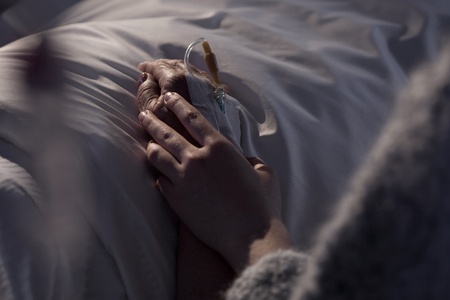Invokana Diabetic Ketoacidosis

Invokana and other Type 2 diabetes medications called SGLT2 inhibitors may cause some patients to experience diabetic ketoacidosis, which occurs when there is too much acid in the blood. In December 2015, the labeling for these drugs was updated to include new warnings about this dangerous condition.
Filing an Invokana Lawsuit Can Help
Bernstein Liebhard LLP, a nationwide law firm that represents those injured by dangerous drug side effects, is now accepting case inquiries involving Invokana and diabetic ketoacidosis. If you or a loved experienced this dangerous complication while taking this or any other SGLT2 inhibitor to treat Type 2 diabetes, please call (888) 994-5118 to find out more about your legal options.
Invokana Litigation Update
- November 2015: A California woman files an Invokana lawsuit alleging that Johnson & Johnson and its Janssen Pharmaceuticals unit failed to adequately warn physicians about the risks associated with the medication.
- October 2015: An Invokana class action lawsuit is filed in Canada that seeks more than $1 billion in damages on behalf of patients in that country who were allegedly harmed by the drug. Read More
Invokana and Diabetic Ketoacidosis
Launched in March 2013, Invokana was the first sodium glucose co-transporter 2 (SGLT2) inhibitor approved by the U.S. Food &Drug Administration (FDA) to treat Type 2 diabetes. In May 2015, the FDA launched a review of all SGLT2 inhibitors, after the medications were implicated in 20 cases of diabetic ketoacidosis. In addition to Invokana, other Type 2 diabetes drugs covered by the FDA’s communication included:
- Invokamet
- Farxiga
- Xigduo XR
- Jardiance
- Glyxambi
Shortly after the FDA, regulators in other countries began issuing similar alerts:
December 2016:
- The Association of British Clinical Diabetologists (ABCD) issues a statement warning that while the likelihood of ketoacidosis with SGLT2 inhibitors is relatively small, its serious nature requires that doctors and patients be aware of risk factors associated with the condition. Read More
- June 2015: The European Medicines Agency (EMA) announced it was also reviewing a possible link between Invokana and ketoacidosis, as well as Jardiance and Farxiga. According to the EMA, the worldwide EudraVigilance database had logged more than 100 reports of diabetic ketoacidosis in patients taking SGLT2 inhibitors or Type 2 diabetes as of May 19, 2015.
- June 2015: Health Canada disclosed that it had received one report of diabetic ketoacidosis involving the hospitalization of a 56-year-old male taking an SGLT2 inhibitor.
- August 2015: The Australian Therapeutic Goods Administration warned patients and doctors that serious cases of diabetic ketoacidosis have been reported in Type 2 diabetics taking SGLT2 inhibitors.
- January 2016: An analysis of FDA adverse event reports conducted by the ISMP reveals 168 instances of ketoacidosis among patients taking Invokana. A total of 80 such reports were associated with Farxiga, while 12 involved Jardiance. Read More
In December 2015, the FDA announced that information regarding a potential association with ketoacidosis would be added to the “Warnings and Precautions” sections of all SGLT2 inhibitors. The agency was also requiring SGLT2 inhibitor manufacturers to conduct a 5-year study in order to analyze post-marketing reports of ketoacidosis in patients treated with these drugs. Read More
What is Diabetic Ketoacidosis?
Diabetic ketoacidosis (sometime referred to as ketosis or acidosis) is a condition that occurs when there is too much acid in the blood. These acids are called ketones, and are released when the body breaks down fat cells for fuel. This condition is most often seen in patients with Type 1 diabetes. But according to the FDA, most of the patients who experienced ketoacidosis while taking SGLT2 inhibitors were Type 2 diabetics. The condition is usually accompanied by high blood glucose levels. But in many of the cases involving Invokana and other SGLT2 inhibitor, levels were only moderately high.
The FDA now recommends that patients stop taking their SGLT2 inhibitor and seek medical attention immediately if they have any symptoms of ketoacidosis, including:
- Nausea
- Vomiting
- Abdominal pain
- Tiredness
- Trouble breathing
Hurt by Invokana? Obtain a Free Case Review.
If you took Invokana and developed diabetic ketoacidosis, now is the time to seek legal advice. To obtain a free, no-obligation case review with one of our attorneys, please call (888) 994-5118.
- FDA (2015) “FDA Drug Safety Communication: FDA warns that SGLT2 inhibitors for diabetes may result in a serious condition of too much acid in the blood” http://www.fda.gov/Drugs/DrugSafety/ucm446845.htm
- EMA (2015) “Review of diabetes medicines called SGLT2 inhibitors started” http://www.ema.europa.eu/ema/index.jsp?curl=pages/medicines/human/referrals/SGLT2_inhibitors/human_referral_prac_000052.jsp&mid=WC0b01ac05805c516f
- Health Canada (2015) “Forxiga, Invokana: Health Canada begins safety review of diabetes drugs known as SGLT2 inhibitors and risk of ketoacidosis” http://healthycanadians.gc.ca/recall-alert-rappel-avis/hc-sc/2015/53892a-eng.php
- Australia Therapeutic Goods Administration (2015) “Sodium glucose co-transporter 2 inhibitors – used to treat type 2 diabetes” https://www.tga.gov.au/alert/sodium-glucose-co-transporter-2-inhibitors-used-treat-type-2-diabetes
- FDA (2015) “FDA Drug Safety Communication: FDA revises labels of SGLT2 inhibitors for diabetes to include warnings about too much acid in the blood and serious urinary tract infections” http://www.fda.gov/Drugs/DrugSafety/ucm475463.htm
- American Diabetes Association (2015) “DKA (Ketoacidosis) & Ketones” http://www.diabetes.org/living-with-diabetes/complications/ketoacidosis-dka.html
Get the latest news and litigation updates about this case by following us on Facebook. Click the "Like" button below.
Follow Us


